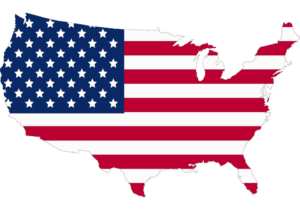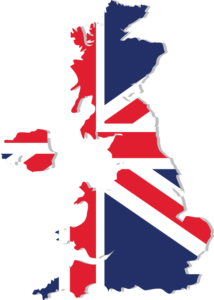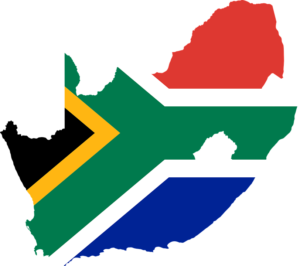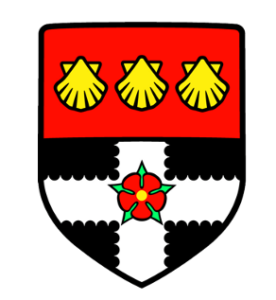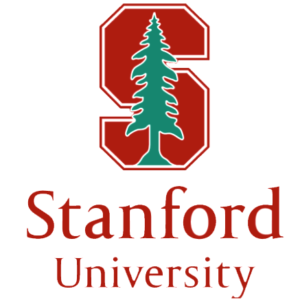Today, food security in many nations is threatened by climate change and long-term drought, the effects of war on supplies of staples from Ukraine, and the damage to global supply chains due to the Covid-19 pandemic.
It has therefore become apparent that mapping to benefit food and water security organisations, that support small farmers in Africa, would be a worthy strategic focus where we could place all energies since small farmers represent the major employment in developing countries and are often at the mercy of unreliable rainfall and drought.
This is so that policymakers, development donors, and aid organisations can benefit from the visual knowledge we supply and spend their time and energy resources better, upon helping small farmers boost their crop yields.
The Roots of MapAid
The roots of MapAid go back to mapping small business support in Kosovo in 1999 by a local team, which benefitted development agencies working on job creation, so vital to peace-building.
However, it was conceived in 2003 at the end of Rupert Douglas-Bate’s fellowship at Stanford University, sponsored by the Thomson Reuters Foundation, when his team of students & faculty won a prize at the Business Association of Stanford Engineering Students summer competition. Out of a field of some 30 contenders, the project came in the top three and won $5,000.
The fellowship team, which consisted of 23 students and some faculty, then decided to start a social enterprise not-for-profit. Everyone was asked to suggest names and a blind ranking was made. Out popped the name “Global MapAid“. While we knew we wanted to “map poverty solutions” we have been slowly evolving our ideas since that moment.
Recent History
In 2011, after the Arab Spring, we decided our hot focus must be to map solutions that underpin sustainable job creation, with a youth focus, as across the world over 620 million youth are not in employment education or training - and from this problem, violence and social unrest may inevitably occur.
From January 2020 we commenced development on an exciting AI system to map shallow groundwater in Ethiopia. Our mission is to promote clean drinking water, irrigation and increased food supply.
Our AI groundwater map is one vital tool to help donors and aid agencies understand better where to put wells, and so reduce the risks and costs of shallow well programs. In terms of community benefits, irrigation will double or even triple crop yields, provide new jobs in food chains, and help families move out of poverty into the cash economy. Other community benefits include the empowerment of women and children, who no longer have to lug heavy water cans each day, while irrigation supports increased soil carbon which supports soil fertility and climate change mitigation.
During the 2020 global Covid pandemic, we also made maps to help inspire hope and support front-line workers, as this seemed the best way we could help.
Look through our history of projects and see what we've achieved over the years.

-
2021-2024
The partners work steadily, and by 2022, the new system, “WellMapr©,” is named. MapAid continues assembling a volunteer tech team to support AI and water scientists from George Mason University. In 2023, the Czech Geological Survey joins, adding crucial geological expertise. Arba Minch University always provides most helpful local leadership and scientific support. By 2024, George Mason University enhances the project with AI expertise through completion of a PhD program, while Ethiopia’s Ministry of Water & Energy, and the NGO Acacia Water, support the effort with an MOU and data, respectively.






-
2020
 USA: George Mason University AI Mapping
USA: George Mason University AI MappingGMA unites Arba Minch University Water Technology Institute of Ethiopia, and George Mason University Center for Resilient & Sustainable Communities of the USA. The mission is to enhance drinking water and food supply for small farmers, by developing an AI for groundwater mapping prototype, to help cost-efficient placement of shallow wells.
 World & UK: Coronavirus & Youth Unemployment Mapping
World & UK: Coronavirus & Youth Unemployment Mapping Global MapAid makes a hope map showing community and medical response to COVID-19 in the UK, and tracks coronavirus cases and deaths throughout the UK and the world. In May as COVID-19 appears to be easing, mapping is accomplished to show youth unemployment and youth opportunities in order to illustrate those who will be hit hardest by the unemployment effects of COVID-19.


 UK: Rebrand
UK: RebrandGlobal MapAid rebrands as “MapAid” and enlists a team of fantastic volunteers with specialisms in social media, marketing and graphic design to achieve this goal.


-
2019
 Ethiopia: Irrigation Mapping Research
Ethiopia: Irrigation Mapping ResearchVisit to Ethiopia, to consolidate partner organisations, and write an enquiry paper on the case for shallow borehole mapping, that led to a presentation to the Association for the Advancement of Artificial Intelligence in November.
 UK: Burns Night Fundraiser
UK: Burns Night FundraiserBuilding on previous success, GMA throws another fabulous Burns Night Dinner Dance fundraiser at the Wheatsheaf Pub, Chilton Foliat.

-
2018
 Ethiopia: Irrigation Mapping Research
Ethiopia: Irrigation Mapping ResearchShort visits to local partners in Ethiopia, to confirm their continued commitment and also their leadership role in irrigation support map project, GMA being just an encourager.

 Fundraiser Burns: Britain
Fundraiser Burns: BritainGMA pivots away from formal fundraising and throws a Burns Night Dinner Dance at the award winning Wheatsheaf Pub, Chilton Foliat.

-
2017
 Ethiopia & UK: Irrigation Map Applications
Ethiopia & UK: Irrigation Map ApplicationsGMA makes five formal applications to large “innovative donors” for support for irrigation mapping in Ethiopia and British projects. Success eludes, however GMA perseveres. GMA remains grateful to our donors large and small.


 US & USA: Google
US & USA: GoogleGoogle gives a generous grant for Adwords, to promote the website, thus adding to the credibility and reach of GMA.



-
2016
 Ethiopia: Study Map Mission
Ethiopia: Study Map MissionShort study to further update and consolidate plans, in partnership with the UK Space Agency and UK Space Applications Catapult. We gathered together several excellent local partners, including the University of Arba Minch, Water Technology Institute, Vita Ireland, Bioeconomy Africa, The Ethiopian Women’s Exporters Association, North South Consulting and the Ethiopian Space Science Technology Institute.
 Brussels: Devex World
Brussels: Devex WorldConsolidation of plans for East Africa working with the World Bank and EU personnel. Attendance at Devex World 2016 to share summaries of these plans. Rebrand of GMA with new logo and website.
-
2015
 Nepal: Evaluation Map Mission
Nepal: Evaluation Map MissionSocial Enterprise Solutions Mapping Project. GMA staff complete an intensive mission to Nepal, to gain partners and assess how mapping social enterprise providers could help. Creating a proposal to map entire country, building local partners.

 USA: Research on Poverty Indices
USA: Research on Poverty IndicesGMA staff complete courses on the Challenge of Global Poverty at the Jamal Poverty Action Lab, Massachusetts Institute of Technology. Also complete Mapping for Social Good at TechChange.
-
2011-2013
 Ethiopia: Microcredit Mapping
Ethiopia: Microcredit MappingMapping levels of microcredit in Addis Ababa. Creating a proposal to map entire country, building local partners.

 UK: Vocational Education & Unemployment Mapping
UK: Vocational Education & Unemployment MappingMapping vocational education in relation to unemployment poverty. A remote team in Britain & Ethiopia accomplished this task.

 Egypt: Mapping Assessment Mission
Egypt: Mapping Assessment MissionPrimary objective to set up local team to create maps of poverty and solutions to poverty.

-
2010
 Haiti: Emergency Map Mission
Haiti: Emergency Map MissionPrimary objective to research locations and boundaries of vocational and trade training programmes and schools.

 Afghanistan: Mapping Assessment Mission
Afghanistan: Mapping Assessment MissionMapping Assessment Mission. Field visit to Kabul to evaluate the domain of sustainable job creation job survey and mapping.

 Zimbabwe: Mapping Assessment Mission
Zimbabwe: Mapping Assessment Mission5,000 schools in Zimbabwe to be digitally mapped, by volunteer efforts.

 USA: Bentley Donation
USA: Bentley DonationDonation. 1,600 GBP donated by Bentley Systems Inc. for future Haiti mission.
-
2009
 South Africa: Desmond Tutu, Patron
South Africa: Desmond Tutu, PatronArchbishop Desmond Tutu, Nobel Peace Prize Winner and great champion of Humanitarian causes, becomes Patron of GMA.
 Zimbabwe: Mapping Assessment Mission
Zimbabwe: Mapping Assessment MissionField visit to initiate Schools & Hospital mapping. Partnerships made with the Movement for Democratic Change Ministers for Health & Education.
-
2006-2008
 UK: Charity Registration
UK: Charity RegistrationGMA in the UK is registered with the Charity Commission for England & Wales.

 South Africa: Mapping Assessment Mission
South Africa: Mapping Assessment MissionPlanning for a branch project. Executed a street children’s mapping project in Port Elizabeth.

 UK: Donation
UK: DonationDonation of 5,000 GBP for core travel funding, from a British millionaire, Mike Edge, from the Bath leadership group ‘Footdown.’


 USA: Geographic Emergency Response Vehicle
USA: Geographic Emergency Response VehicleNegotiations with Americorps VISTA. Attempt to build a ‘Geographic Emergency Response Vehicle’ to make maps of poverty. Project mothballed, due to recession hitting corporate donors.
 Nepal: Mapping Assessment Mission
Nepal: Mapping Assessment MissionCollaboration with National Society for Earthquake Technology.
 Brazil: Online Mapping
Brazil: Online MappingGMA and volunteers from University of Fortaleza, create an online mapping collaboration tool: WikiMapAid.org, ‘the Wikipedia of humanitarian mapping’ for mainstream non-technical users.
 Emirates: Mapping Assessment Mission
Emirates: Mapping Assessment MissionField visit to the Emirates, to open dialogue with Emirati government about a local GMA team.

 UK: Humanitarian Map Icons
UK: Humanitarian Map IconsGMA created a brand new set of humanitarian map icons.

 Pakistan: Mapping Assessment Mission
Pakistan: Mapping Assessment MissionMaking maps for the Potohar Organisation for Development Advocacy, an indigenous not-for-profit, to guide donors and other visitors to their projects (after the earthquake in October 2005). Secured a reliable church-based Field Partner, God’s Vision Ministries, with whom we have co-written a proposal for an overseas GMA team.
-
2005
 USA: Hurricane Katrina Emergency Mapping
USA: Hurricane Katrina Emergency MappingRapid deployment to New Orleans after Hurricane Katrina on 29 August 2005, to collect data and make 50,000 maps showing victims where to get aid, as well as food distribution maps for the American Red Cross vehicles.
Read more about this mission here….


 Indonesia: Post-Emergency Map Mission
Indonesia: Post-Emergency Map MissionA Short Term Training Mission: Equipping and training the University of Syiah Kuala, Bande Aceh with mobile data collection devices, post-tsunami, led by GMA volunteer Erin Kees, which took place after the December 2004 tsunami.
 USA: Donation
USA: DonationThe software mapping company ESRI gave GMA valuable software.
-
2004
 US: Charity Registration
US: Charity RegistrationWilson Sonsini Goodrich and Rosati (Google’s law firm) gave 18 months of pro-bono support to have GMA registered as a ‘501(c)3’ read ‘American charity.’ After registration, an initial 34,000 USD was raised for the training and initial deployment in Pakistan, Indonesia and New Orleans, Louisiana. Vodafone US Foundation and Omidyar (eBay) Foundation.

-
2003
 South Africa: Mapping Assessment Mission
South Africa: Mapping Assessment Mission Assessment Mission. GMA visited with long term work intentions.

 USA: Donations
USA: DonationsGMA was generously supported by the Vodafone US Foundation and the Omidyar Foundation with startup funding.



-
2002
 USA: Fellowship Humanitarian Mapping
USA: Fellowship Humanitarian MappingAt Stanford University, Rupert Douglas-Bate was funded 70,000 USD for a Reuters Digital Vision Programme fellowship in humanitarian mapping technology. It won a cash prize of 5,000 USD.




